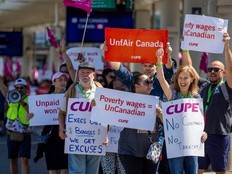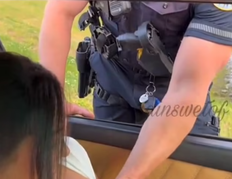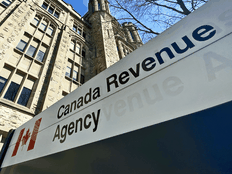'UNPRECEDENTED TERRITORY': Conservatives sweep Windsor-Essex in modern-day first
Two incumbents were defeated including longtime NDP MP Brian Masse, who fell to third place

Article content
As much of the rest of Canada went red Monday night, an epic voter shift turned all of Windsor-Essex blue.
In a Canadian election often dominated by U.S. politics, the Liberal Party of Canada scored a historic comeback on Monday with Prime Minister Mark Carney — leader of a party written off as a sure loser — winning a fourth government mandate.
But an equally historic turn occurred in Windsor-Essex, where the Conservative Party of Canada swept every riding, a modern-day first, including the defeat of two incumbents.
In a major border battleground victory, Conservative Harb Gill won Windsor West over longtime NDP incumbent Brian Masse, who fell to third place after holding a seemingly unshakeable grip in the riding since 2002.
The Conservatives also appear to have taken Windsor-Tecumseh-Lakeshore from Liberal incumbent Irek Kusmierczyk, who helped bring a potentially unprecedented amount of funding and investment to the local region during his two terms as MP. The official vote was not yet certain Tuesday morning, however, in a close race.
“For Windsor to flip blue is quite something,” said University of Windsor political scientist Lydia Miljan.
“It does show that the Conservative strategy of gunning for blue-collar support and for union support paid off, especially in Windsor, and some Hamilton ridings as well.
“Clearly, they were speaking to people where they lived. They were focused on economic issues, and people were feeling the cost of living. I think their strategy and timing played very well for them, in this region at least.”
Gill’s victory marks the first time Windsor West has had a Conservative MP in the riding’s six-decade history.
“Tonight, you made your voices heard,” Gill told his roughly 70 supporters who gathered Monday night at the Babylon Banquet Hall in Windsor.
“Tonight, you made history. You chose hope over fear, opportunity over division, and a fresh start for our community. Tonight, you chose change.
“I am incredibly honoured and grateful for the trust you placed in me.”
Masse’s loss after 23 years was part of an epic unraveling for the NDP. Leader Jagmeet Singh stepped down early Tuesday after losing his own British Columbia seat — and party status in the House of Commons.
The NDP went into the election with 24 seats and came out with seven.
“I have zero regrets about anything that took place,” said Masse. “I have nothing but admiration and great experiences and fond memories, even during a loss.
“The result isn’t what we wanted tonight, but that’s okay. That’s our democracy, and I accept the results.”
The hotly contested race in Windsor-Tecumseh-Lakeshore was too close to call until after midnight. But Conservative Kathy Borrelli apparently unseated Liberal Irek Kusmierczyk, who had represented the riding since 2019.
“We know that on everyone’s mind is affordability,” Borrelli said. “We need to bring down prices of homes. We need to, of course, get rid of the carbon tax.
“We need fewer taxes. Food needs to be more affordable, generally, for our community.”
In Essex, Conservative incumbent Chris Lewis coasted to a decisive third consecutive win.
“To the people of Essex, it means the world to me that you’ve entrusted me once again to represent you in Ottawa,” he said. “I will do it with dignity. I will do it with humility and I will do it with a bounce in my step and a smile on my face.”
Conservative incumbent Dave Epp also easily held onto his seat in Chatham-Kent-Leamington.
The seismic shift in the Windsor ridings means the region no longer has a representative of the governing party advocating for it. But Miljan said that doesn’t leave it out in the wilderness.
Despite the Liberals winning a minority government and Conservative Leader Pierre Poilievre’s own loss in his Ottawa-area riding, the Tories gained about 20 seats on Monday.
“The Conservatives are certainly in play,” said Miljan. “They aren’t to be underestimated. The fact is that they did increase their vote share to higher levels than when they won in 2011 — but still not enough to topple the Liberals.”
She said Carney will also need the Conservatives to fight an American trade war — a vital issue for a border region with an economy intricately tied to the U.S.
Rarely, if ever, has a Canadian federal election been so focused on a foreign country and its leader.
For many candidates and Canadians, this was a referendum on who is best suited to take on U.S. President Donald Trump in a trade war and fend off his repeated suggestions Canada become a 51st state.
Those fears — and a change in leadership to Carney from the increasingly unpopular Justin Trudeau — likely saved Liberal party fortunes.
In January, the Liberals were so unpopular that some polls predicted they might not secure the 12 seats needed to maintain party status.
“We’re in sort of unprecedented territory,” said Miljan. “Job one now for Carney is to negotiate a trade deal with Trump. I think he will need the good will of opposition parties. He can’t take the electorate for granted.
“The pressure is going to be exceptionally high on him to deliver. He will need to have some unifying messages. And he needs to appeal to Conservatives in some respects.”














Postmedia is committed to maintaining a lively but civil forum for discussion. Please keep comments relevant and respectful. Comments may take up to an hour to appear on the site. You will receive an email if there is a reply to your comment, an update to a thread you follow or if a user you follow comments. Visit our Community Guidelines for more information.